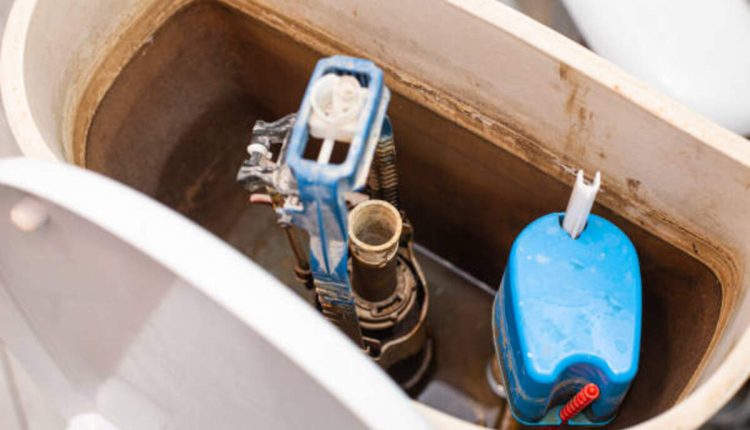When experiencing plumbing problems, it’s essential to identify their cause. An increase in your water bill could signal that there’s a leak somewhere, while clogged drains could indicate something as diverse as improper installation work or maintenance being responsible.
1. Clogged Toilets
Clogged toilets are one of the most frequent plumbing issues homeowners experience, and they can quickly become an annoyance and expense if left unaddressed. When basic methods like plunging or liquid drain cleaner fail, professional help may be required – sometimes, even as early as 24 hours after first calling us!
Clogged toilets often result from flushing items not intended to go down the toilet, such as sanitary wipes, cotton balls, paper towels, or ear swabs. It would help if you educated your family members not to flush anything unwanted into the system while providing trashcans in each bathroom for the disposal of trash.
Other causes of clogged toilets include hard water minerals that form a white deposit that’s hard to clear away and narrow waste passageways. Clogs in main sewer lines require professional intervention; plumbers use cameras to locate the source of any problems before removing them; this process usually involves more steps than unclogging individual drain lines and may include taking other measures like cutting through tree roots blocking off part of the line; an expensive but necessary service.
2. Slow Drains
Slow drains can be an enormous nuisance and an early indicator that something needs to be fixed before it escalates further. Luckily, many plumbing issues can be easily repaired by homeowners themselves, but you should only attempt these fixes if you are familiar with what to do.
Most slow drains are due to residue that accumulates in sinks and other drainpipes, including food waste, hair, cotton swabs, and baby wipes. Sometimes, these materials form rings that block drains. Liquid drain cleaners may help temporarily, but for optimal performance, it is best to clear your drains regularly.
Sometimes, a drain may clog due to issues in its main sewer line. An experienced plumber can use cameras and vent stack cameras to inspect pipes and vent stacks as well as remove sediment that accumulates over time, helping water flow more freely into drains – critical if you regularly use toilet paper or products known to cause obstructions in drains.
3. Leaky Pipes
Leaks in your pipes can lead to water damage, mold growth, and increased bills if left unaddressed. A licensed plumber can inspect and fix leaks within your system, but before calling one, be sure to shut off the main supply and place a container under any visible leaks in order to capture any dripping liquid that escapes through its surface.
Corrosion is one of the primary causes of leaky pipes, often due to mineral deposits, poor plumbing connections, or simply age. To minimize corrosion damage, use proper waste disposal methods and maintain your plumbing system so it remains in good shape.
Broken and cracked pipes are another frequent cause of leaking pipes, typically as the result of improper installation, age, or physical damage from bumping into or hanging items on them. If you suspect such damage, it’s essential to call in a professional as soon as possible; otherwise, the pipe could burst and cause costly water damage in the home.
4. Water Bill Spikes
Many homeowners underestimate the importance of maintaining their plumbing systems. While everything may work on autopilot and require only occasional flushing and turning on and off faucets to run water, regular maintenance checks should be conducted in order to detect issues before they become costly and complex.
One sure sign that your home’s plumbing requires attention is an unexpected spike in the water bill with no apparent explanation for it. This could indicate leaks, which will only worsen over time if they go undetected, costing you more money in the process.
Check your water meter and look for signs of wet spots or leaks throughout your home, such as damp spots in the basement, around outdoor plumbing fixtures, in the bathroom, or any other room. A leaky pipe can cause severe water damage and mold issues that are costly to repair – hiring an experienced plumber with proper tools to quickly address leaks before they escalate further is crucial for saving both time and money in the future. Make sure certified professionals install all new appliances or fixtures to avoid future headaches.
5. Odors and Noises
Your plumbing is something to take seriously in your home. Although hidden from view, plumbing has its way of communicating its needs – knowing which sounds and smells to look out for will allow you to stay ahead of the game when it comes to maintaining its best possible state.
Bad plumbing can have detrimental consequences to both your health and well-being. Most notably, it can let in harmful bacteria into the water supply, potentially leading to serious health concerns for users. Furthermore, improper plumbing systems may create conditions conducive to mold growth that threaten respiratory health, as well as create conditions conducive to the spread of mildew or mold growth that compromise respiratory systems.
Attention should be paid to any warning signs of plumbing problems, and when necessary, contact a professional plumber immediately. Don’t let minor issues escalate into bigger ones that affect the entire house and cause costly damages; by understanding these ten warning signs, you can prevent unnecessary damage to both property and health – for more information, contact a local plumbing service today.

